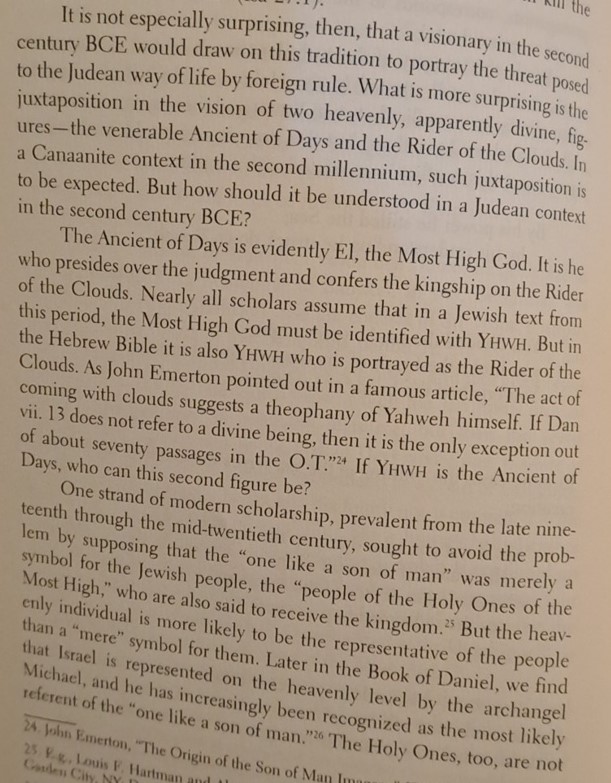John J. Collins argues that the "Ancient of Days" is El (the Most High God); notes that, at 2nd century B.C. the Most High God was also identified with YHWH.
- Type
- Book
- Source
- John Joseph Collins Non-LDS
- Hearsay
- DirectSecondary
- Reference
John J. Collins, “The Legacy of Canaan in Ancient Israel and Early Christianity,” in Biblical Essays in Honor of Daniel J. Harrington, SJ, and Richard J. Clifford, SJ: Opportunity For No Little Instruction, ed. Christopher G. Frechette, Christopher R. Matthews, and Thomas D. Stegman (New York: Paulist Press, 2014), 78
- Scribe/Publisher
- Paulist Press
- People
- John Joseph Collins
- Audience
- Reading Public
- Transcription
The Ancient of Days is evidently El, the Most High God. It is he who presides over the judgment and confers the kingship on the Rider of the Clouds. Nearly all scholars assume that in a Jewish text from this period, the Most High God must be identified with YHWH. But in the Hebrew Bible it is also YHWH who is portrayed as the Rider of the Clouds. As John Emerton pointed out in a famous article, “the act of coming with clouds suggests a theophany of Yahweh himself. If Dan vii. 13 does not refer to a divine being, then it is the only exception out of about seventy passages in the O.T.
- Citations in Mormonr Qnas
The B. H. Roberts Foundation is not owned by, operated by, or affiliated with the Church of Jesus Christ of Latter-day Saints.

